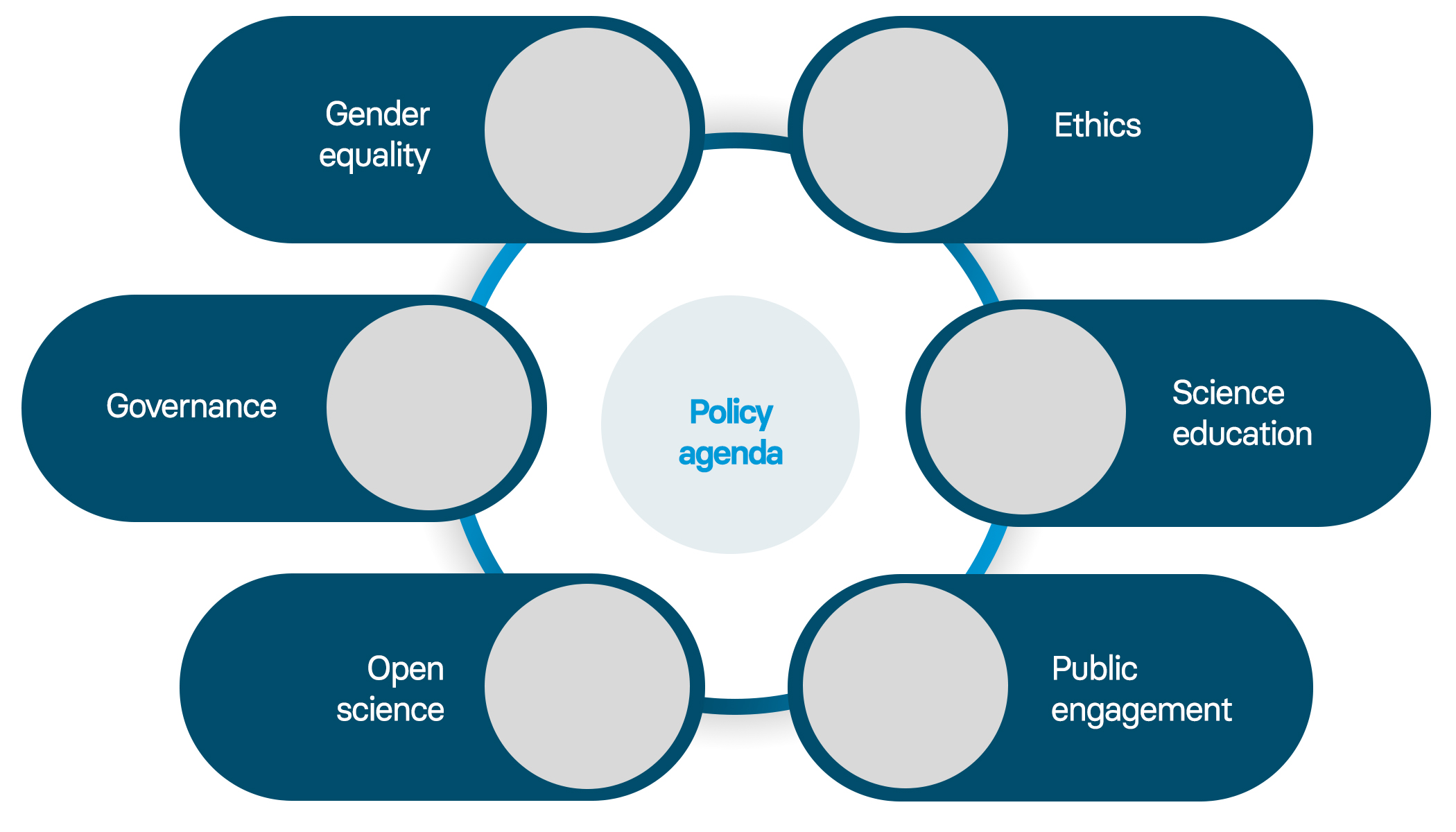Responsible Research and Innovation
IrsiCaixa promotes the transition towards an open system of research and innovation that works with and for society.

About Responsible Research and Innovation
Responsible Research and Innovation (RRI) aims to involve, from the outset, all stakeholders in R&I so as to ensure that results are aligned with the values, needs, and expectations of society. Those stakeholder include, not only research and innovation (R&I) staff, but also policy makers, business and industry, non-governmental organizations, civil society organizations, and citizens.

IrsiCaixa from the RRI perspective
Ethics: IrsiCaixa has an ethics committee that evaluates the scientific programme on an ongoing basis to ensure the integrity of IrsiCaixa’s research and benefits for society of the resulting products.
Gender equality: Ensuring gender balance in research teams and in positions of responsibility at IrsiCaixa is a fundamental pillar of IrsiCaixa policies. IrsiCaixa also works to ensure a gender perspective in its R&I projects with a view to improving the quality and social relevance of results and avoiding bias.
Governance: To foster good governance, understood in RRI to be any form of coordination designed to promote the interaction of all stakeholders in R&I projects, IrsiCaixa, through Living Lab for Health, provides the tools that enable free and informed decision-making and shared responsibility.
Open science: Accessibility to scientific knowledge and replicability of results is essential for the progress of science. In its aim to make science more democratic and ensure that it meets the needs of society, IrsiCaixa’s Research Data Management Department has circuits and protocols in place that foster access to research, collaboration, and transparency.
Public engagement: To encourage R&I that is collaborative and involves all stakeholders, IrsiCaixa's Living Lab for Health carries out participatory research projects in which civil society and organizations work together to align results with the values, needs, and expectations of society.
Science education: IrsiCaixa’s Living Lab for Health develops resources and activities aimed at a variety of groups, mainly in the educational community. Aims are to improve existing educational processes by fostering the skills and knowledge needed to engage in R&I, and to promote scientific vocations in the interest of increasing the number of researchers.
Community Advisory Committee (CAC)
The Community Advisory Committee (CAC) is an external participatory body that was established in 2009 to provide the scientific community with a broad and complementary view on the impact, potential consequences and feasibility of clinical studies and research projects being conducted. The CAC's input contributes to improving the quality of research by better aligning it with the needs and expectations of the affected community.